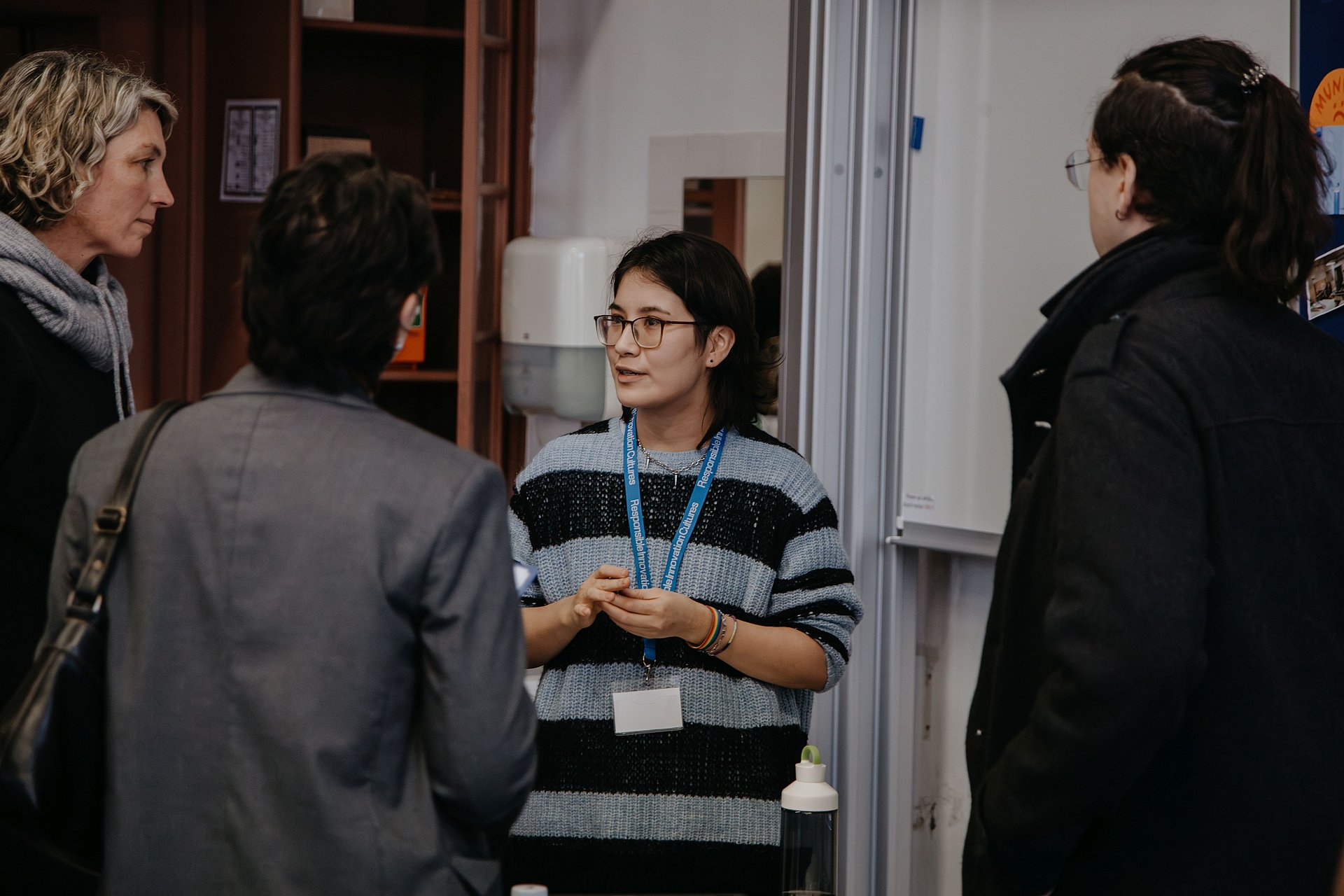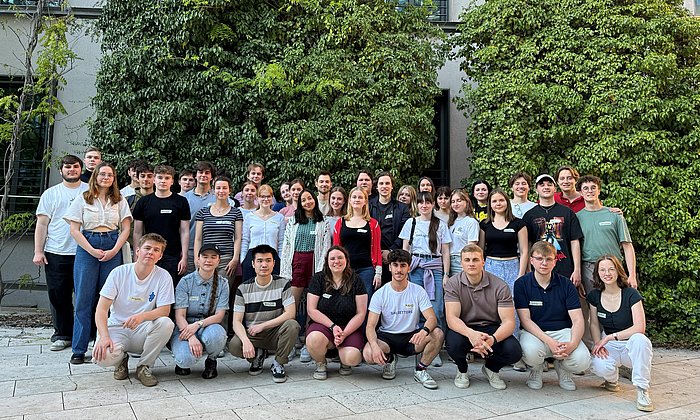Pixel art about unseen worlds
This Place Saves Lives: An award for a serious game that looks closer

One project, one week, and a highly sensitive topic: For Anie and Rai, it quickly became clear that they wanted to spend their project week “A Different Kind of Game Jam” exploring a space the public barely notices — and the people who find safety within it. Both study Informatics and are interested in intersectionality, meaning the ways in which different forms of discrimination intersect and reinforce one another.
Marginalization meets humanity in pixel art
“What mattered most to us was meeting the characters in the game at eye level,” they emphasize. That’s why they decided players should experience the supervised drug consumption room as new staff members: “On one hand, you interact with different characters and get to know their personal stories; on the other, you have to decide which services to invest the limited budget in.”
The more they researched, the clearer it became just how complex these spaces are: supervised drug consumption rooms provide safety, yet many women avoid them due to a lack of gender-sensitive services. At the same time, Anie and Rai want to show how social factors shape why and how people use drugs. “The biggest challenge was putting the humanity of the characters front and center and making their stories accessible without becoming superficial or falling into stereotypes,” they explain.
In the intense working atmosphere of this week, the prototype “This Place Saves Lives” takes shape — a game that offers insight into lived realities that usually remain hidden from us. Artistically, Anie and Rai find a clear style: in minimalist pixel art, they create a game world that simplifies complexity and directs the focus entirely toward the characters.
How teaching becomes a playground for social questions
The project week “A Different Kind of Game Jam”, developed by Clara Valdés Stauber, is is part of the Wissenschaft, Technologie, Gesellschaft program (Kontextlehre WTG), in collaboration with the TUM Center for Culture and Arts. This set of contextual studies courses allows students from all disciplines to reflect on political, cultural, and social perspectives on science and technology. “The gaming world is diverse — and it doesn’t always have to be more than ‘just’ fun,” Valdés Stauber says. “At the same time, we want to take on the challenge of using complex social issues as a foundation for game ideas.” Inspiration comes not only from gaming but also from art and theater. Insights into the interconnections between science, technology, and society are meant to flow into new, creative formats for a broad audience.
At the beginning of the project week, Anie and Rai are presented with three possible themes. For them, the choice is immediate: the workshop by Dr. Aysel Sultan, based on her research on gender-specific needs in drug services. “People, and especially women who use illicit drugs are among the most marginalized and at-risk groups of populations”, Sultan explains. “Through this workshop, we wanted to design a game to communicate the urgent need for integrating gender-specific services and also, better understand what they are and how they should be designed.”
How well this approach works is demonstrated by the award for “This Place Saves Lives”. On the GamesFestival25 website, the jury’s decision is explained as follows: “With lovingly crafted pixel art, coherent sound design, and a clear media-educational approach, This Place Saves Lives makes the invisible visible. The game confronts without lecturing — it informs without judging.”
For Clara Valdés Stauber, this is exactly where the greatest potential lies: “It would be fantastic if these projects could be published in the future and used in places like museums as public-engagement formats!” In this way, games like “This Place Saves Lives” can become spaces for discussing social and political issues — sparking conversations that extend far beyond the university setting.
- Discover TUM project weeks
- Learn more about the Kontextlehre WTG
- Explore the TUM Center for Culture and Arts
- Go to the GamesPreis25 website (in German)
Technical University of Munich
- Natalie Neudert
- natalie.neudert@tum.de




